From Bougainville to Hungnam: A Marine’s Life of Service
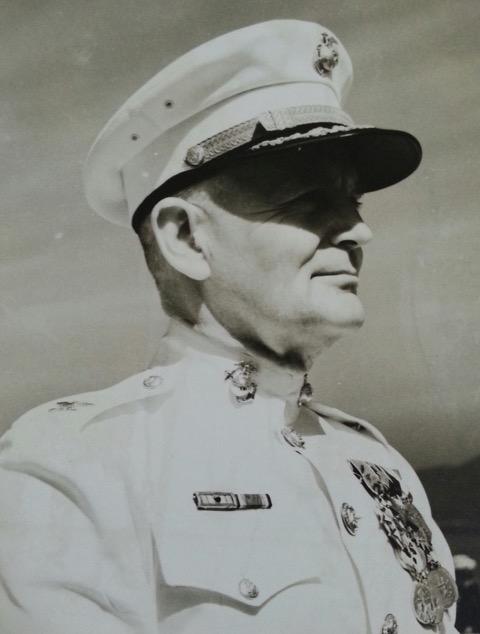
He’s one of the main reasons I’m in Korea. But after spending more than three years researching the Marine colonel who dedicated his life to country and Corps, I’m still no closer to knowing what made him click. I’ve pieced together some of the “who, what, where, and when” of his life, but it's the “why” I can’t figure out.
Why did he become a Marine? Why did he divorce his wife during World War II and rarely see his children? Why was he willing to risk so much - his reputation, career, and life - to help save tens of thousands of people he didn’t know during the Korean War? Why was he so determined to return to the Republic of Korea in 1957? And why was he such a serious and reflective man? Unfortunately, I’m not sure I’ll ever find the answers.
But I have clues . . .
A Nomadic Life
Edward H. Forney was born in Denver, Colorado in 1909. His father, an engineer who found it hard to settle down, moved the family to Colorado, Washington, NYC, Havana, and Hollywood - all in a span of 14 years.
Edward, the eldest of the three Forney children, and his mother were the stabilizing forces in an otherwise disruptive family dynamic. With the elder Forney often imbibing more than he should and frequently changing jobs, Edward, or Eddie as he was called, took on the role of protective big brother and loyal son. A tremendous sense of responsibility and duty to his siblings and mother overwhelmed him and remained with him much of his life.
After graduating from St. John’s College, a military high school in Washington, DC, in 1927 and the US Naval Academy in 1931, he was commissioned a 2nd Lieutenant in the US Marine Corps and spent the next 28 years serving his country.

World War II and Korea
During World War II, he fought at New Georgia and Bougainville, distinguishing himself in deadly jungle firefights and beach assaults. But he also found time to briefly return from the Pacific, and in an uncharacteristic decision that shocked his family, he divorced his wife and remarried a woman whom he had met before deploying.
In the post-war years, he worked at the Pentagon, graduated from the Armed Forces Staff College, and became one of the Marine Corps' top amphibious experts.
During the Korean War, he served as the Deputy Chief of Staff for X Corps, helping plan and implement landings at Inchon and Wonsan. His finest hour came in December of 1950, when, as the Hungnam Evacuation control officer, he organized the withdrawal of 110,000 servicemen – along with their equipment, supplies, and vehicles - and 100,000 North Korean refugees from Hungnam, North Korea. The operation was the largest US amphibious evacuation of civilians, under combat conditions, in American history. Today, there are an estimated one million descendants of those refugees living in freedom around the world.
Return to Korea
In 1957, Colonel Forney returned to Korea to be with the people he had grown to love in 1950. As the Senior US Marine Corps Advisor to the Republic of Korea (ROK) Marine Corps, he spent the next two years working with the officers and enlisted men of the ROK Marines. He helped them purchase equipment, develop their war-fighting tactics, and secure the land for the biggest ROK Marine base in Korea: the 1st ROK Marine Division Base in Pohang, South Korea.
Today the main road on the base is named “Forney Road,” in honor of the US Marine Colonel who helped persuade ROK president Syngman Rhee to give the land for the base to the ROK Marines.
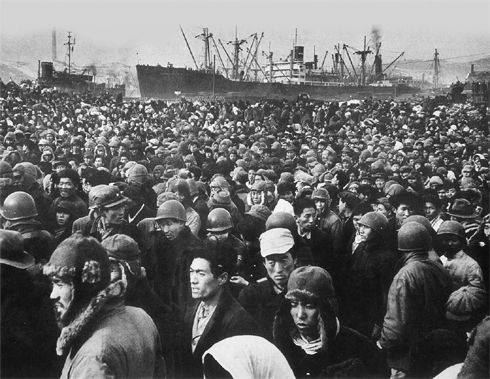
Refugees waiting to evacuate at Hungnam.
The Marine I Never Knew
Colonel E.H. Forney (promoted to Brigadier General at his retirement) died of cancer on January 21, 1965, at Presidio’s Letterman General Hospital in San Francisco. He was 55.
I was only two when he died, so I never got the chance to know him. Neither did his son or daughter. They grew up without a father. He rarely saw them and was uninvolved in their lives until they were adults. I can only imagine how my dad, who also became a Marine officer, and his sister must have felt. Tragically, they missed out on one of the most important relationships in life, something I've always taken for granted: a relationship between a loving father and his children.
Like so many other children whose fathers served during wartime, the pain caused from misunderstanding, separation, and grief had a profound impact on their lives.
Happy Birthday, Marine!
Despite his imperfections, on the 109th anniversary of his birth, I salute Colonel Forney, the man who served his country honorably and played a critical role in saving so many people during the Korean War.
Thank you, Col. Forney. Semper Fi!
Top/Feature Photo: Col. Edward H. Forney, USMC, in South Korea, 1958 (Photo courtesy of Ned Forney)
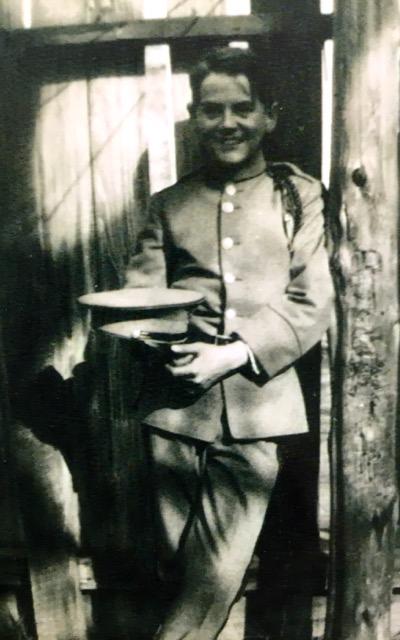
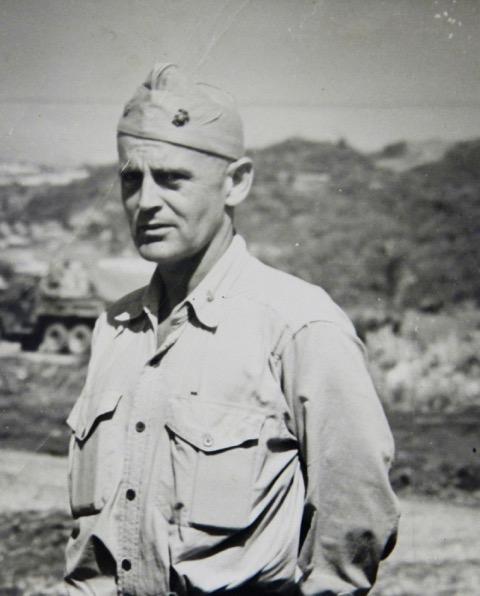
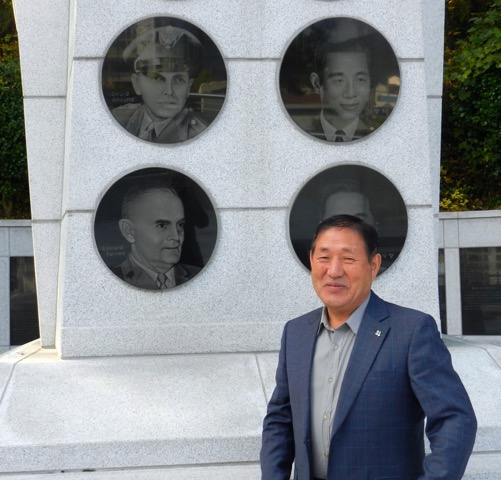
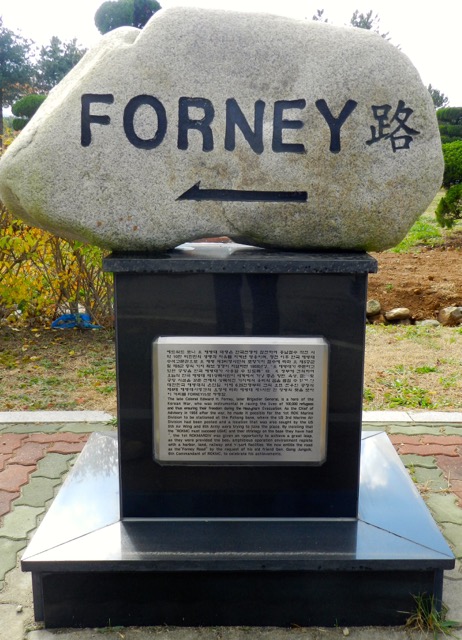
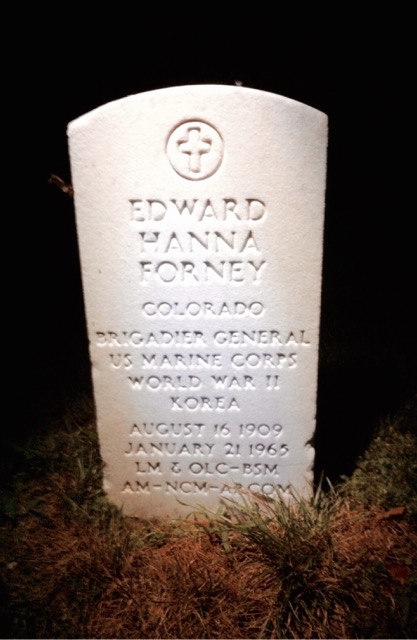
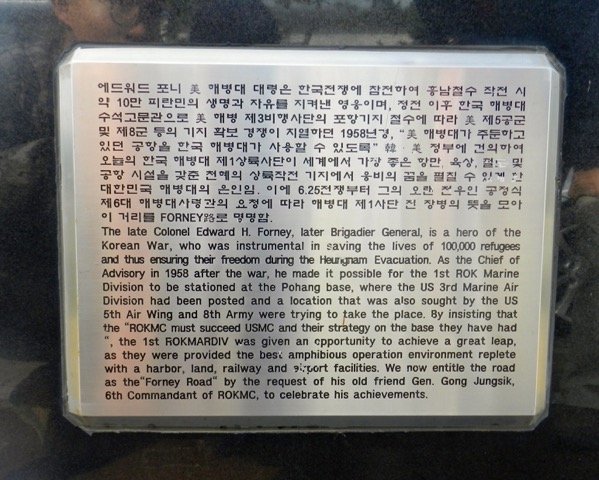
My heart/soul so very touched by this story of my Uncle Eddie. His brother was my father, Col Gerard Joseph Forney graduate of West Point, serving in WW2 in Greenland, the CBI, involved in building the Burma Road, and finally ar Los Alamos and Oak Ridge. Daddy also had a great love for Edward, who figured largely in forming his life. We were with Uncle Eddie and Aunt Carol at Letterman, when he passed away. I remember singing for him every afternoon after school. We loved each other very much. For me he was a great man, serving his country, devoted to his mother and two siblings. I honor the man. Happy Birthday, Uncle Eddie.
Thanks for reading the blog and sending these heartfelt comments about “Uncle Eddie.” Your father was also an American hero of the Greatest Generation. They both served their country honorably.
Always good to hear from you, Alexa.